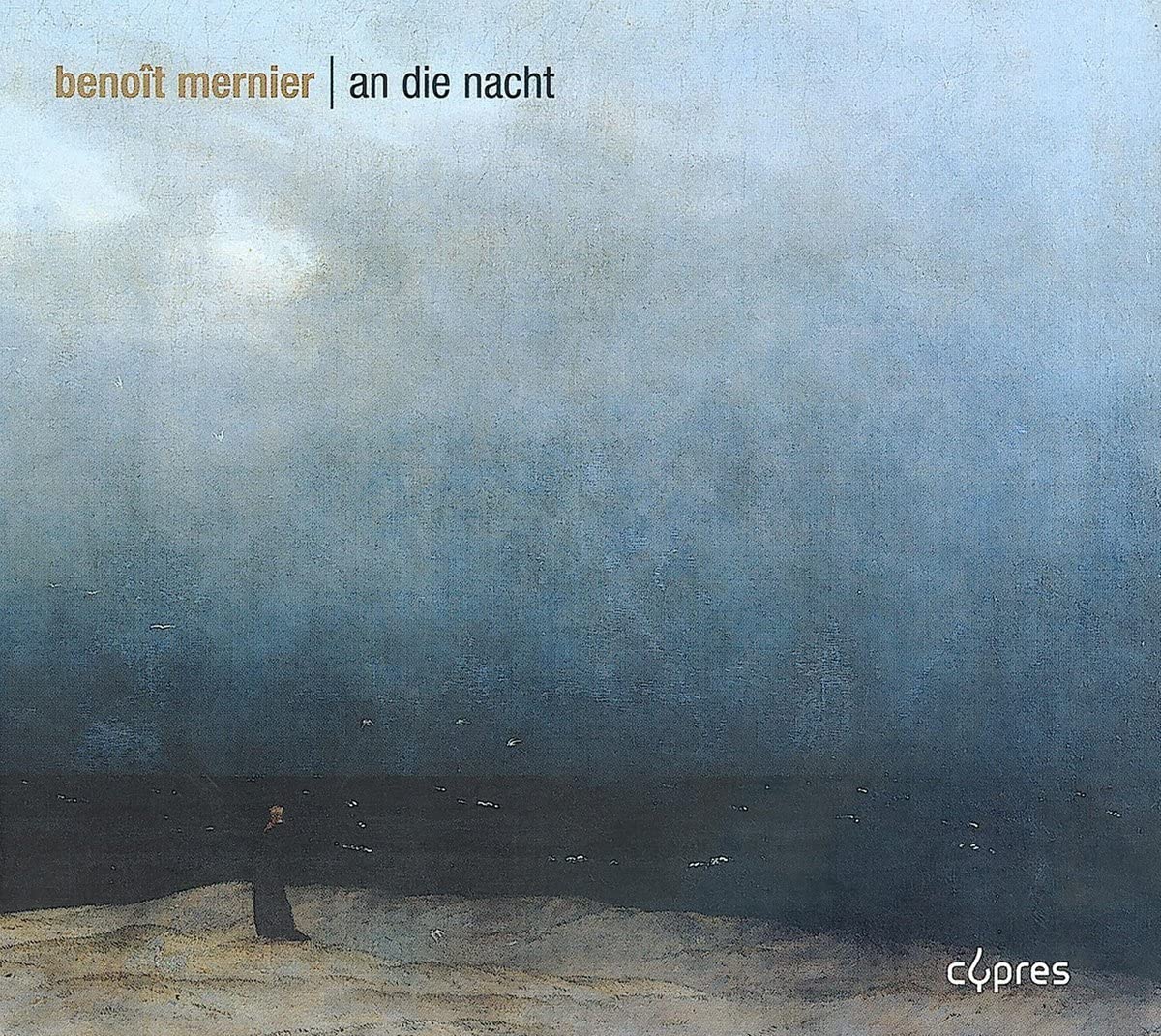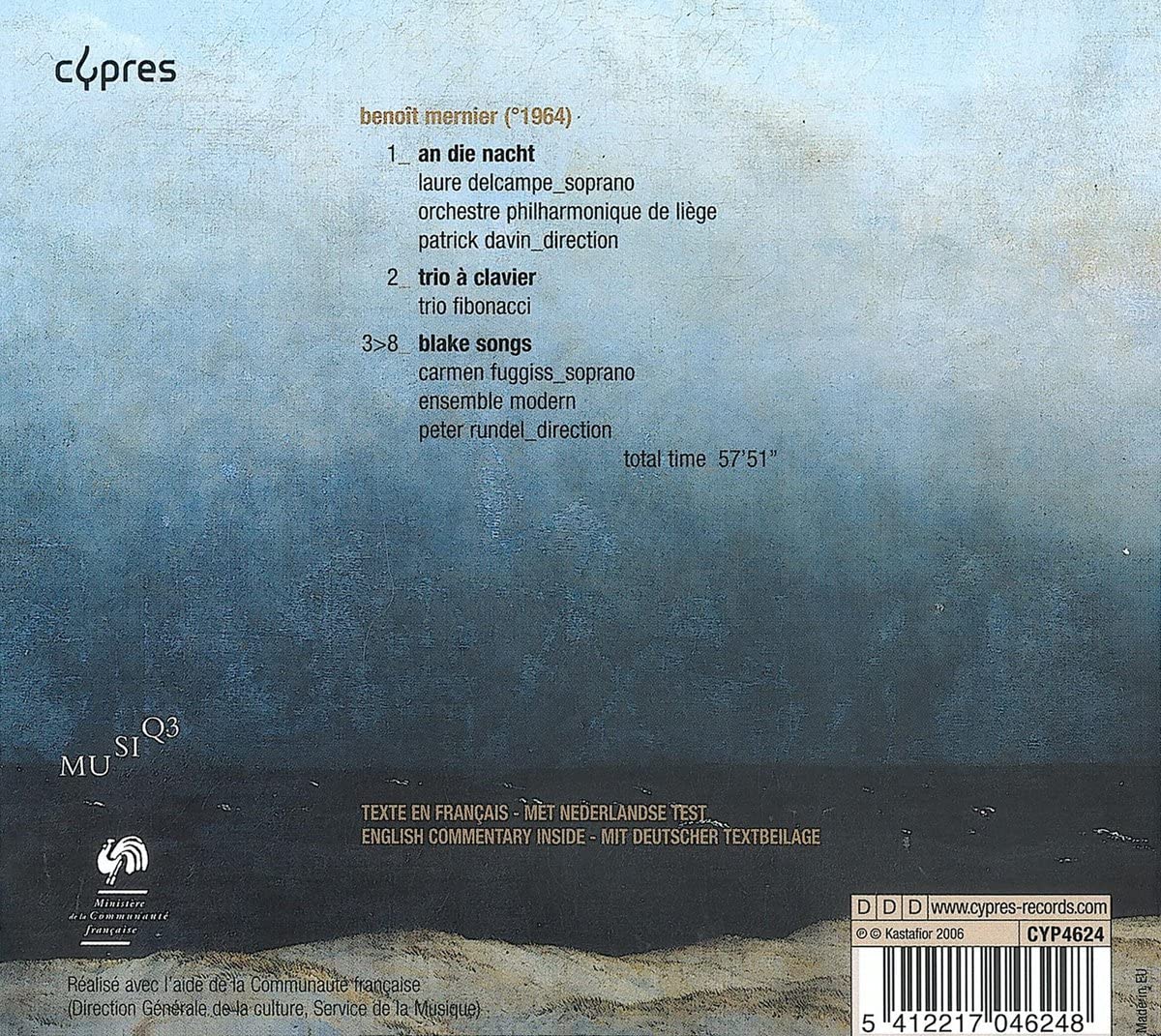
kompozytor
Mernier, Benoît
tytuł
Mernier: An die Nacht für Sopran & Orchester
wykonawcy
Davin, Patrick;
Orchestre Philharmonique Royal de Liège;
Ensemble Modern;
Delcampe, Laure;
Fugiss, Carmen;
Trio Fibonacci;
Rundel, Peter
Orchestre Philharmonique Royal de Liège;
Ensemble Modern;
Delcampe, Laure;
Fugiss, Carmen;
Trio Fibonacci;
Rundel, Peter
nr katalogowy
CYP 4624
opis
Benoît Mernier, a composer who is happy to describe himself as a craftsman, expressing his ideal in the following simple words that are not without a hint of irony: “to be a decent musician”. A firm believer in the “rhetoric of movement and agility”, he is one of the most sophisticated and complex composers of his genera-tion, a true “modern”. In this programme he emerges as a musician-poet inspired in the ethos of Romanticism. His style is instantly recognisable and, over and above the various sources of his inspiration, he has forged, in the keenest sense of the word, a style that is all his own - the prize that comes with being true to oneself. • The CD opens with An die Nacht, a sublime text by Novalis – that brilliant poet of the Night of the early German Romantic movement – which praises night for helping to bring about the lovers’ union, whilst cursing the return of day, which will not only cause them to part, but will also lead to the death of the beloved. Preceded by a long orchestral prologue, Mernier’s work is more of a symphonic poem for voice and orchestra than a grand lied; whereas the voice abounds in subtle ornamental vocalisations, the orchestral writing is of the utmost refinement and complexity, resulting in a sound climate of absolute beauty. “The orchestration is rich and inspired, and the vocal writing eminently musical without retreating into the past: the Liège Orchestra, with some inspired conducting by Patrick Davin, and particularly the soprano Laure Delcampe, who once again is not only technically faultless but also breathtakingly dramatic in her interpretation, [are] the musicians whose peerless craftsmanship has fashioned this superb performance.” (Nicolas Blanmont). • The Trio à clavier marks the most recent stage in Mernier’s Schumanian quest, which on this occasion takes the form of a homage to Schuman’s Trio in D minor op. 63. In this work, he takes polyphonic and, particularly, polyrhythmic richness even further than in An die Nacht, since three chamber soloists can be treated more boldly than the members of a full ochestra. Trio Fibonacci apply themselves to the exercise with extraordinary savoir faire. • The cycle of six Blake Songs brings together the voice of soprano Carmen Fuggiss and an ensemble of thirteen instrumentalists: wood, brass, keyboard and a string quintetet (Ensemble Modern). The cycle is meti-culously structured, not least in the choice of poetic texts, the poems of William Blake. The visionary genius of the English poet-painter ranges incessantly between the poles of madness and nostalgia for lost innocence.
nośnik
CD
gatunek
Muzyka klasyczna
producent
Cypres
data wydania
01-05-2006
EAN / kod kreskowy
5412217046248

(Produkt nie został jeszcze oceniony)
cena 79,00 zł
lubProdukt na zamówienie
Wysyłka ustalana indywidualnie.
Darmowa wysyłka dla zamówień powyżej 300 zł!
Darmowy kurier dla zamówień powyżej 500 zł!
sprawdź koszty wysyłki

































